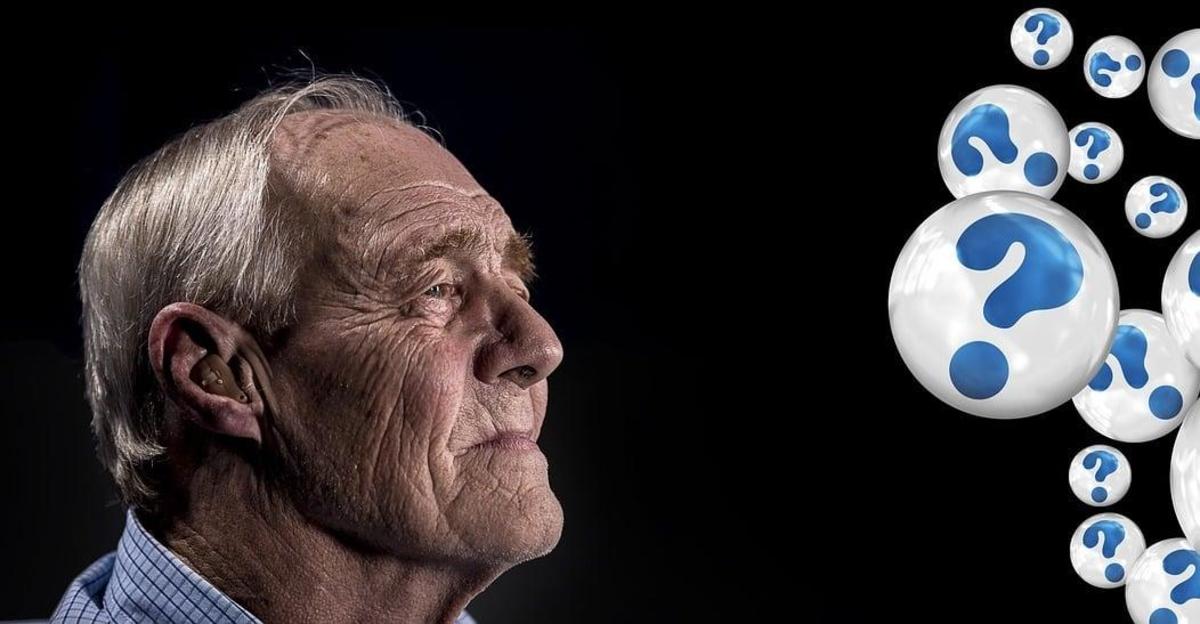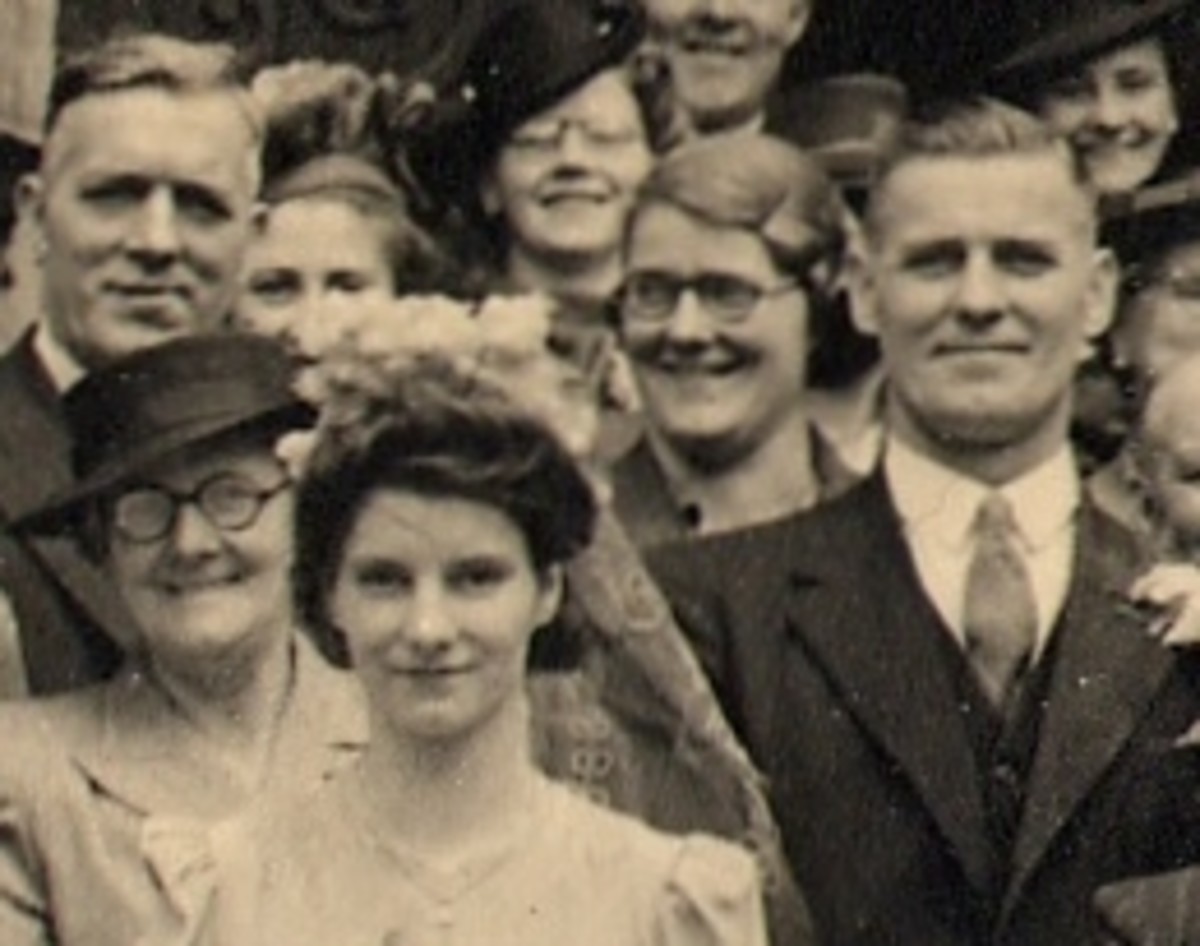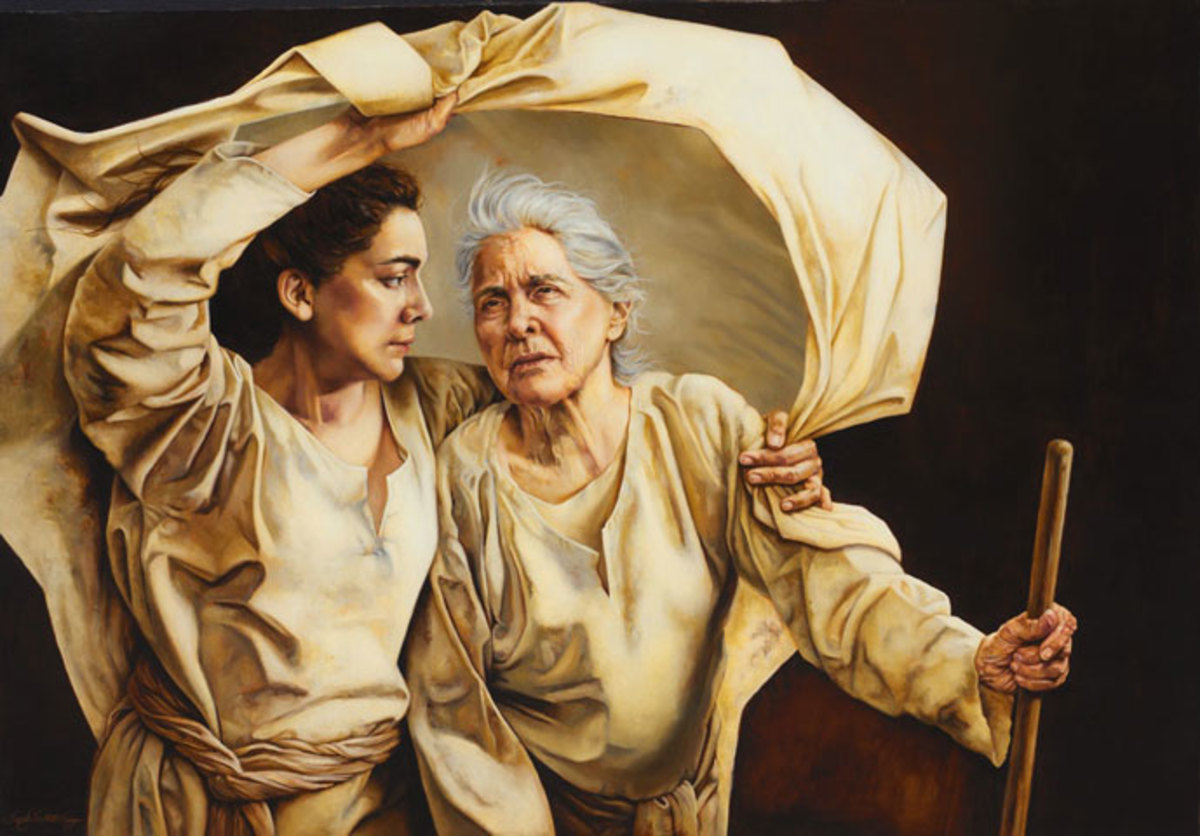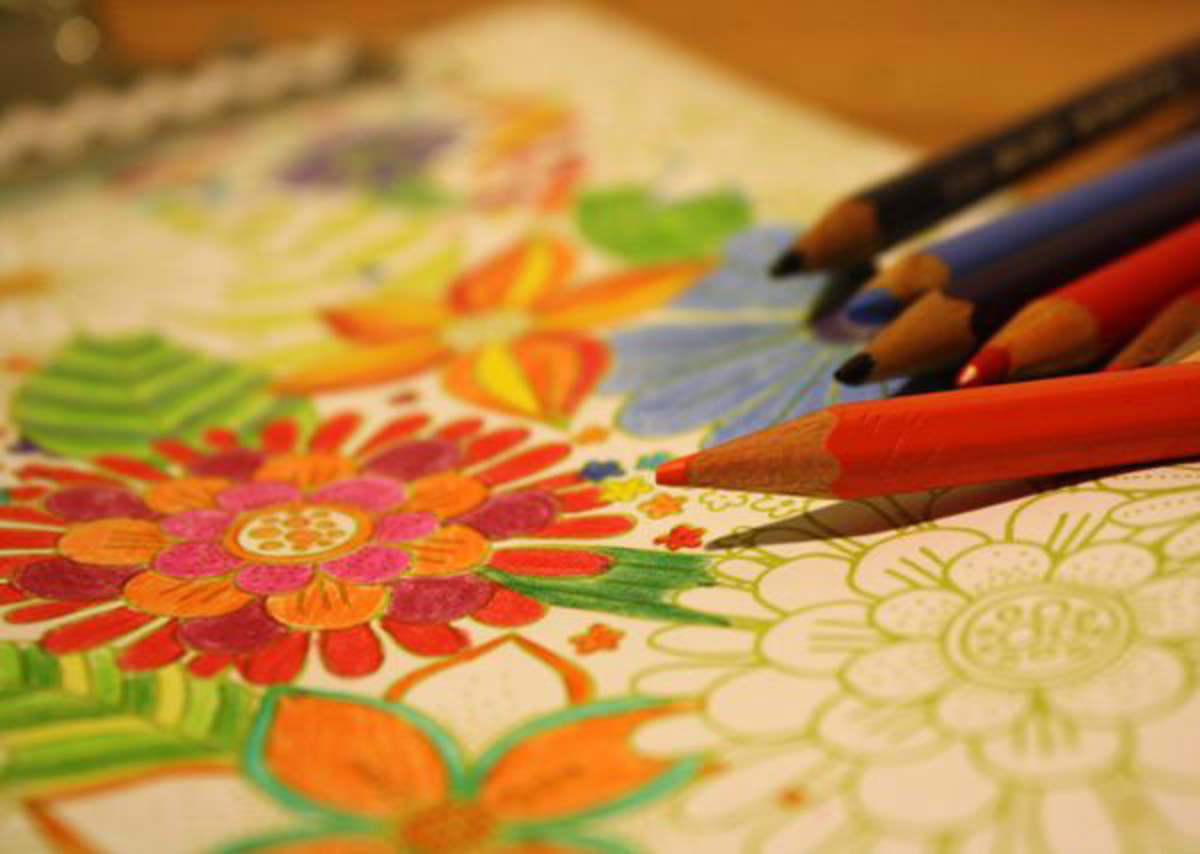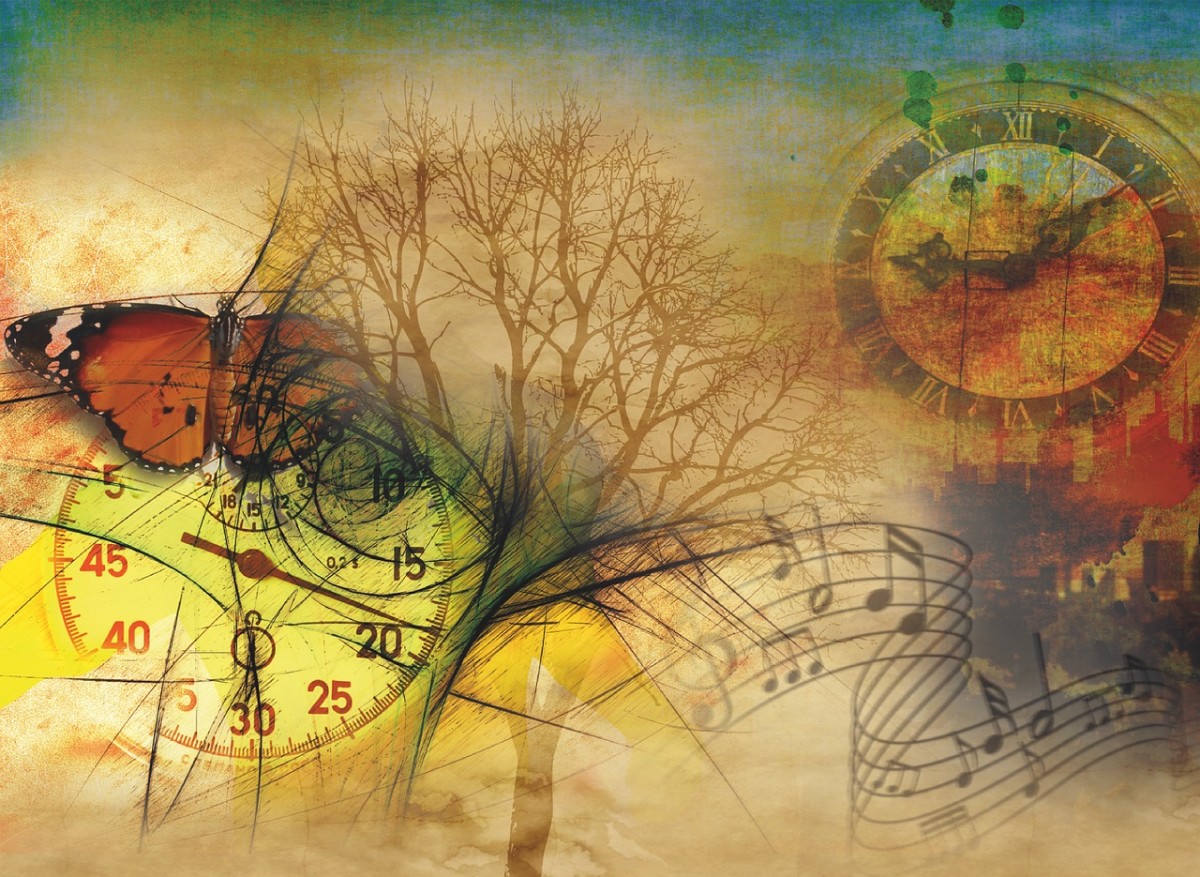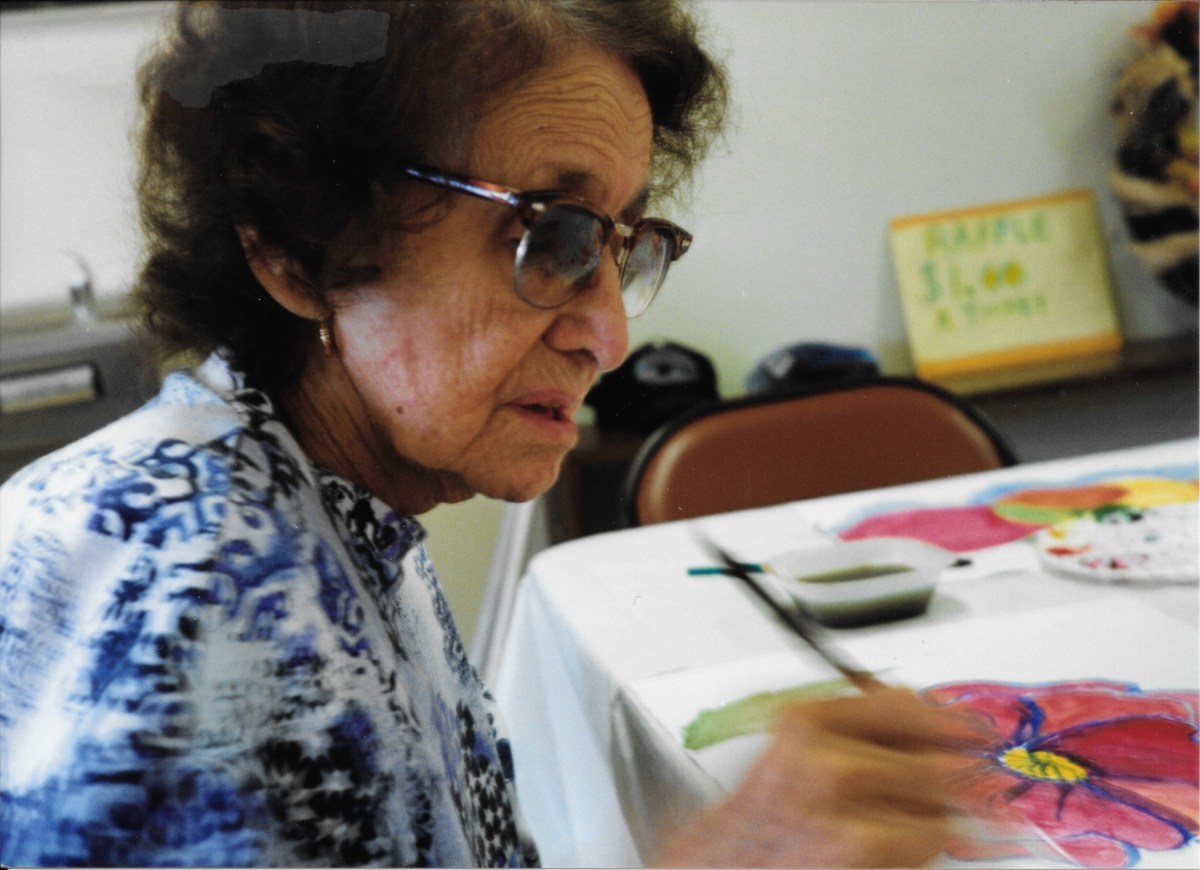Alzheimer's Disease: Losing More Than Memories
From Dementia to Alzheimer's
Just 10 months. That's all it took.
My grandmother changed from a somewhat forgetful elderly lady (she's 92) who could get around with a walker and enjoyed activities like watching my daughter's gymnastics meets, to a wheelchair-bound and completely frightened old woman who has to be locked in her room every night at the assisted living facility, for her own safety.
She was a fiercely independent person. Up until age 88, she would still walk the steep stairs in her home to do the laundry and even attempted to keep up her 1/2 acre vegetable garden. Sure, she was a bit forgetful, but she was rarely at a loss for words.
When grandpa died, she had to move to a nursing home, which she detested. My mom had her come and stay at their house every month for a week or more. But my mom is not a nurse, and her home was not properly outfitted for these visits. One night, grandma fell in the bathroom. No one found her until morning; she had been down for 4 hours or more by then. That was 10 months ago.
Grandma slipped away from us quickly following the accident. Today, she doesn't even recognize her own grown children. Hallucinations frighten her at night and she has become unruly when its time to transport her to doctor and dentist appointments. Finally, we received the diagnosis that we all knew would come - though we tried to explain her symptoms away as merely aging - Alzheimer's Disease.
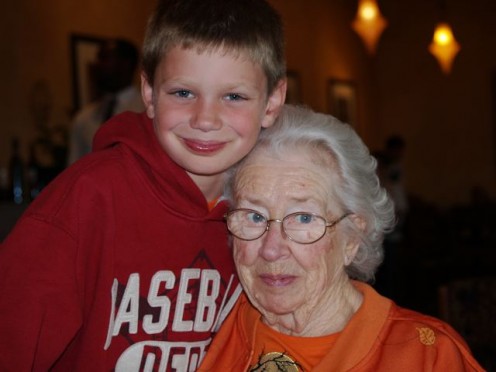
Who Suffers from Alzheimer's Disease?
Alzheimer's Disease can strike people from middle age to the elderly. In fact, if you are over 50, experts advise to be aware of the signs of Alzheimer's.
More than 380,000 (that's well over a quarter million) people are diagnosed with the progressive disease every year. Over 5.3 million Americans suffer from Alzheimer's. But they are not the only ones affected.
Spouses, children, neighbors, parishioners, experience the "Long Goodbye," as the disease runs its course. One reporter on CBS Sunday Morning, whose wife was diagnosed in her 50s, describes it as attending the same funeral, over and over again, without finality.
Caring for a person with Alzheimer's is stressful and very expensive. My mother drives 1 1/2 hours each way to visit my grandmother twice a week. Most days, grandma just sleeps through the visit, and she never remembers that my mom has been there, let alone the fact that she's her own daughter. When they moved grandma from her "regular" apartment to the Alzheimer's ward, the monthly bill quadrupled.
Sadly, it can take years before the brain can no longer function to direct even basic functions like breathing. In some cases, the patient may linger for 8-10 years, not knowing who they are, not remembering their deepest memories, and not being able to moderate their emotional outbursts. Eventually, some patients can no longer feed themselves. Loved ones nearly always have to seek professional assistance for caregiving.
A Daughter Talks About Her Mother's Disease
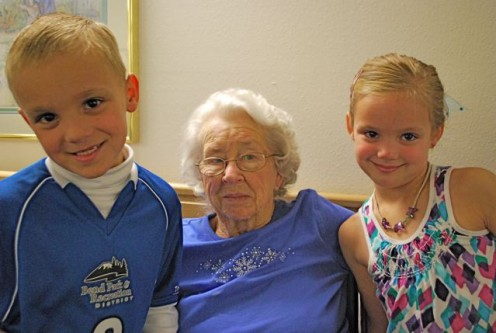
What are the Effects of Alzheimer's Disease?
Alzheimer's Disease gradually affects discrete areas of the brain that are responsible for certain functions. Plaques and tangles on the brain kill off cells slowly over time, compromising a wide range of functions healthy people take for granted.
You may notice the following signs of Alzheimer's in your loved one:
- Forgetfulness
- Agitation, anger or a general change in mood/disposition
- Inability to recall recent events
- Difficulty planning for the day or solving simple problems
- Inability to remember names of loved ones
- Confusion regarding time or date
- Difficulty in "finding words" when speaking
Consult a medical professional if you notice these symptoms and they are impacting daily life.
With grandma, we believed that she had dementia and was simply aging, which meant forgetting things. The diagnosis of Alzhemier's Disease came following her significant confusion as to the date, the time, her changes in mood and - perhaps the most scary to witness - her hallucinations.
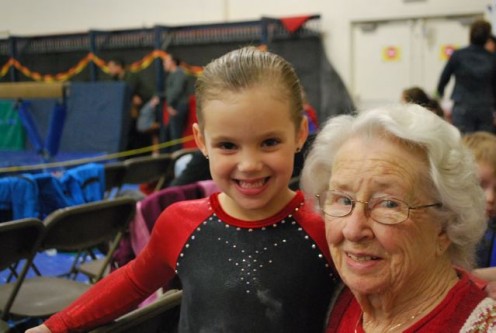
What Can You Do if Your Loved One has Alzheimer's Disease?
Unfortunately, Alzheimer's is not curable at this time. People have reported varying success in slowing its progression using several drugs, but researchers and scientists are hoping to find effective treatments to either prevent or treat the disease. There are many organizations (listed below in this article) to which you can donate to help advance the medical research.
So, what can you do if your loved one has Alzheimer's Disease? I can speak from our own experiences:
- Be patient - whether they have confusion over the date or are asking the same questions repeatedly, keep in mind that its not their fault
- Be consistent - routines can help. Rouse them in the morning at the same time each day and keep mealtimes predictable
- Be loving - help them comb their hair or brush their teeth. Offer your assistance. Visit them frequently and if you live far away, send cards regularly. We find that a 45 minute visit is about the length of time that grandma can endure; we read cards to her and chat about the season, we walk down the hall and comment on the pictures
- Introduce yourself - its not a quiz show or a test! Don't ask them if they know who you are. My mom always walks in and cheerfully announces, "Hi Mom, its me, Jeanyne!"
- Talk about special memories - on a good day, grandma loves looking at photo albums as we identify the people in the photographs for her
Alzheimer's Disease Can Strike Younger Adults too
Find a Support Group for Alzheimer's Disease
The long goodbye of Alzheimer's Disease is exhausting. Your loved one is no longer the person you married or grew up with. You feel helpless and often you feel angry. Why bother visiting, if they don't even know who you are?
Time drags on and the progression of the disease can be upsetting as cognitive and physical functions decline and more assistance is needed for basic activities like getting dressed and eating.
Trust me here - you still need to visit. Your strength is comfort to the person suffering from the disease. I see the joy on my grandmother's face when I bring my children in to see her. She's just happy to have visitors to sit with her for a bit, even if she doesn't remember our names or even that we are related to her.
There are support groups to help with the overwhelming emotions associated with helping a loved one with Alzheimer's. Ask your medical professional for referrals, or consider one of the organizations listed below in this article.
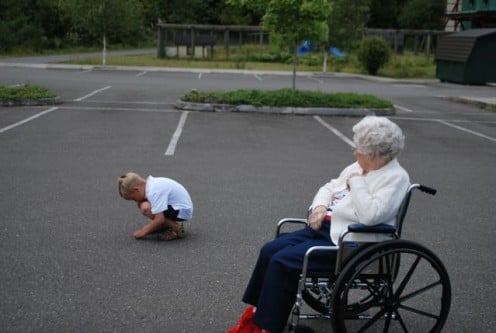
Maria Shriver Discusses the Impact of Alzheimer's on Her Family
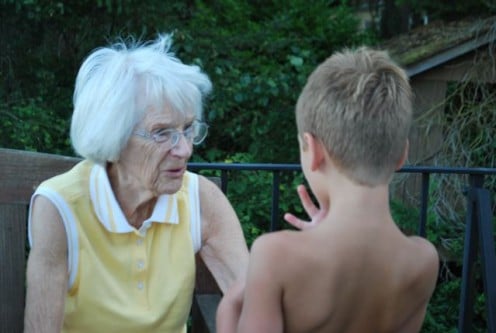
Donate to Help Find a Cure for Alzheimer's Disease
© 2011 Stephanie Marshall


